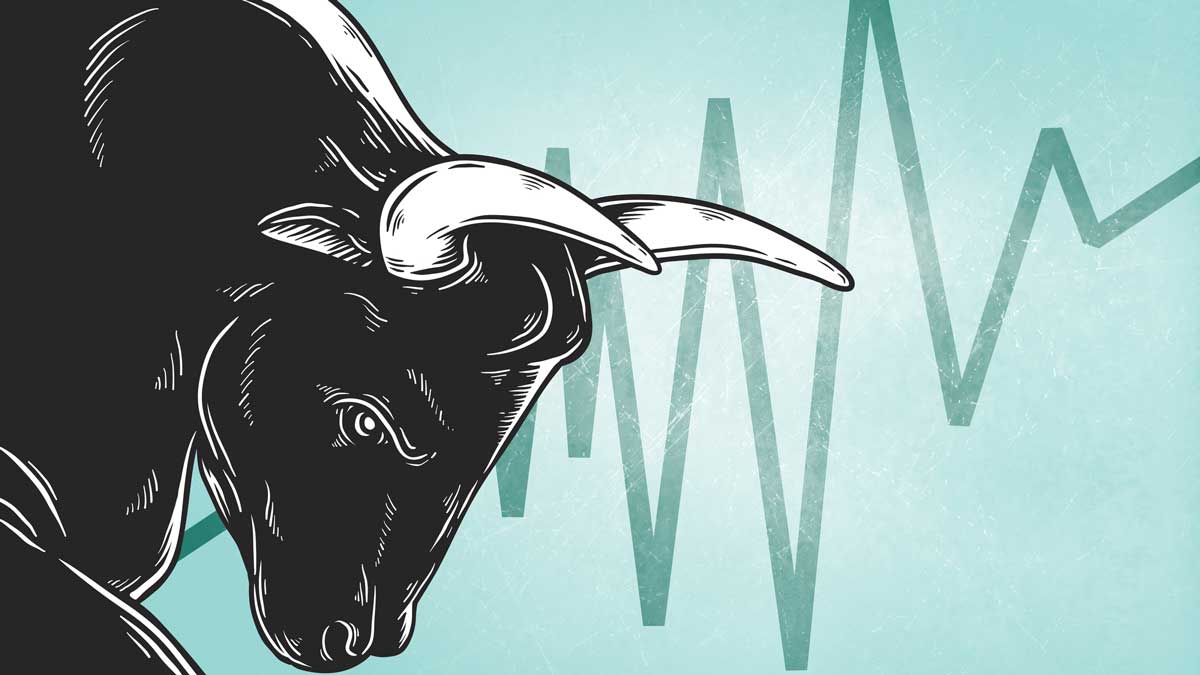By Nick Massey
January 4, 2022
Are we still in a bull market?
I don’t know about you, but I’m pretty sick of all the virus and vaccine talk. People get a little nuts when the subject comes up. Everyone has a strong opinion about it, it’s pretty equally divided, and nobody is changing their mind. It seems that people are really touchy about this subject. This has been true for a while, but it is still true. Everybody needs to chill out a little.
Anyway, these days you can’t talk about the stock market without talking about vaccines and the virus. The value/inflation/re-opening trade remains a never-ending debate, and there is constant worry about a new round of lockdowns. The doomsday scenario is that we keep dealing with a new variant, and we’ll have rolling lockdowns for the next ten years. Let’s hope that doesn’t happen.
I certainly don’t pretend to be any kind of healthcare expert, but let’s explore the long-term effects on the stock market. If that happened, what would the stock market do? In the first iteration of the coronavirus, the Fed poured liquidity into the economy, and the government handed out free cash, which resulted in stocks climbing 100 percent from the lows in March 2020.
If you continue that train of thought, you might conclude that the virus is not bad for business. In the short term, it is, but long term, it’s not. Extreme fiscal and monetary policy measures tend to be good for stocks, not bad. For the record, I was not in favor of all that spending and taking on so much debt, but they certainly didn’t ask for my opinion. Perhaps they lost my phone number. I agree that some added liquidity was a good thing at first, but I’m concerned with the long-term effects since then. We’ll see.
Of course, I’m not too interested in what the S&P 500 index does because the index is dominated by huge tech companies. I’m more interested in the S&P 490, i.e. taking out the top ten tech names. I think that is about to change, although I am uncertain of the timing.
Let’s think through this. These were the last few bear markets in stocks:
- 2020: Coronavirus (a short panic)
- 2011: European debt crisis (barely 20%)
- 2008: Real estate
- 2000: Dotcom bust
- 1991: Real estate
- 1987: Crash (a one-day phenomenon)
- Early 1980s: Interest rates
I am leaving out the Long Term Capital Management crisis of 1998, which, basically, only lasted a day.
The conventional wisdom around bear markets is that we cannot conceive of what would cause a bear market in advance. It is a “black swan,” i.e. an unforeseeable random big event. Is that true? The only true black swans on our list, 2020 and 1987, resulted in very brief, short-lasting bear markets. The other stuff, like the financial crisis, we could see that coming a mile off. At least some people did, although certainly not the Federal Reserve who said the sub-prime debt problem was “contained.” Yeah, right.
As I sit around and think of what might trigger the next bear market. I am not coming up with anything. After almost 45 years in the investment business, I’ve never been accused of lacking imagination. Meanwhile, the Fed and the government are dumping cash into the economy, and all that liquidity is going somewhere.
So, I have a tough time believing people who say this is somehow going to result in deflation, at least not for now. While my educational background is in finance and economics, I am not an economist, and this does not constitute economic analysis. Maybe you could say I’m a “street economist” trying to see things as they are in the real world. The simplest ideas are often the best. If future variants of the virus cause more cash to be dumped into the economy, I can’t see the stock market going down while that is going on. Again, I don’t think that’s a good idea in the long run, but it certainly has an impact in the near term.
What will cause the next bear market? It remains to be seen, but the withdrawal of liquidity when the Fed tightens monetary policy or when the government tries to reduce the deficit could create problems. Sooner or later, they will have to do it, but that’s nowhere on the horizon for now. This is how markets work: it will matter when it matters, and not a moment sooner. There is no use thinking about it now. We’ll see.
I believe the Fed has a million reasons not to tighten monetary policy. Two big ones are unemployment and the virus. I also believe the Fed only has one reason to tighten, and that is inflation. The Fed is just doing what it said it would do: making sure that inflation averages two percent over time. When that changes, all bets are off. I can thank the military for instilling in me a profound sense of cynicism. It continues to serve me well to this day.
Subscribe to Email Updates
Subscribe
Get Edmond Business news in your inbox.

About Nick Massey
Nick Massey is a retired financial advisor and CFP, and former President of Massey Financial Services. He can be reached at nickokc@hotmail.com.



